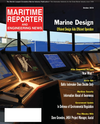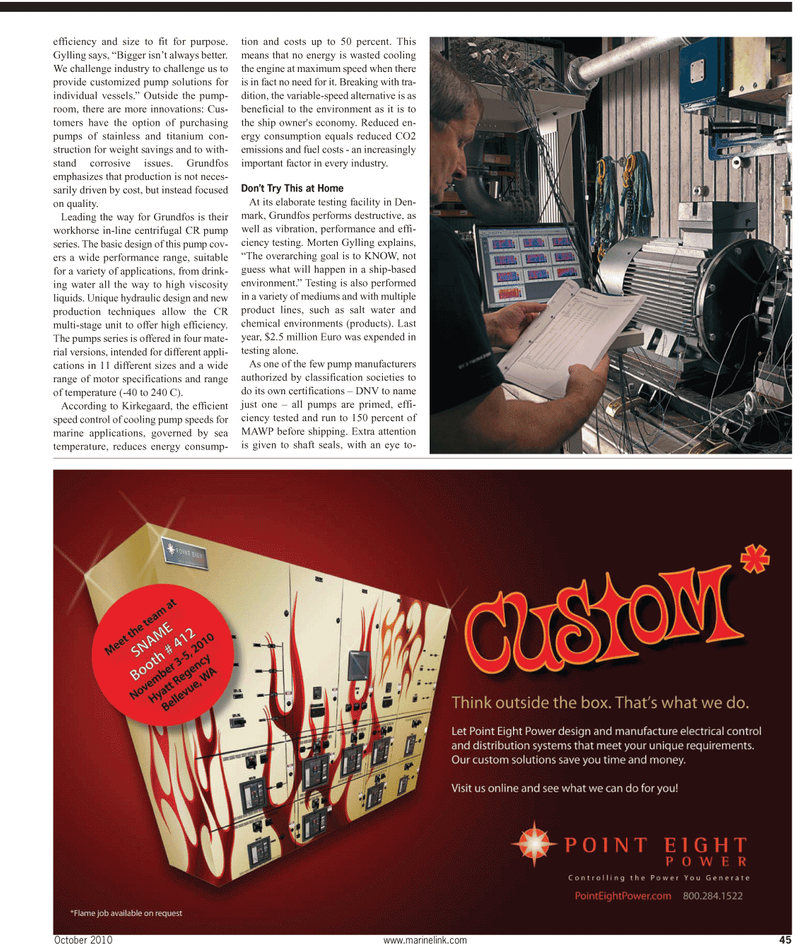
Page 45: of Maritime Reporter Magazine (October 2010)
Marine Design Annual
Read this page in Pdf, Flash or Html5 edition of October 2010 Maritime Reporter Magazine
October 2010 www.marinelink.com 45 efficiency and size to fit for purpose.
Gylling says, “Bigger isn’t always better.
We challenge industry to challenge us to provide customized pump solutions for individual vessels.” Outside the pump- room, there are more innovations: Cus- tomers have the option of purchasing pumps of stainless and titanium con- struction for weight savings and to with- stand corrosive issues. Grundfos emphasizes that production is not neces- sarily driven by cost, but instead focused on quality.
Leading the way for Grundfos is their workhorse in-line centrifugal CR pump series. The basic design of this pump cov- ers a wide performance range, suitable for a variety of applications, from drink- ing water all the way to high viscosity liquids. Unique hydraulic design and new production techniques allow the CR multi-stage unit to offer high efficiency.
The pumps series is offered in four mate- rial versions, intended for different appli- cations in 11 different sizes and a wide range of motor specifications and range of temperature (-40 to 240 C).
According to Kirkegaard, the efficient speed control of cooling pump speeds for marine applications, governed by sea temperature, reduces energy consump- tion and costs up to 50 percent. This means that no energy is wasted cooling the engine at maximum speed when there is in fact no need for it. Breaking with tra- dition, the variable-speed alternative is as beneficial to the environment as it is to the ship owner's economy. Reduced en- ergy consumption equals reduced CO2 emissions and fuel costs - an increasingly important factor in every industry.
Don’t Try This at Home
At its elaborate testing facility in Den- mark, Grundfos performs destructive, as well as vibration, performance and effi- ciency testing. Morten Gylling explains, “The overarching goal is to KNOW, not guess what will happen in a ship-based environment.” Testing is also performed in a variety of mediums and with multiple product lines, such as salt water and chemical environments (products). Last year, $2.5 million Euro was expended in testing alone.
As one of the few pump manufacturers authorized by classification societies to do its own certifications – DNV to name just one – all pumps are primed, effi- ciency tested and run to 150 percent of
MAWP before shipping. Extra attention is given to shaft seals, with an eye to-

 44
44

 46
46
